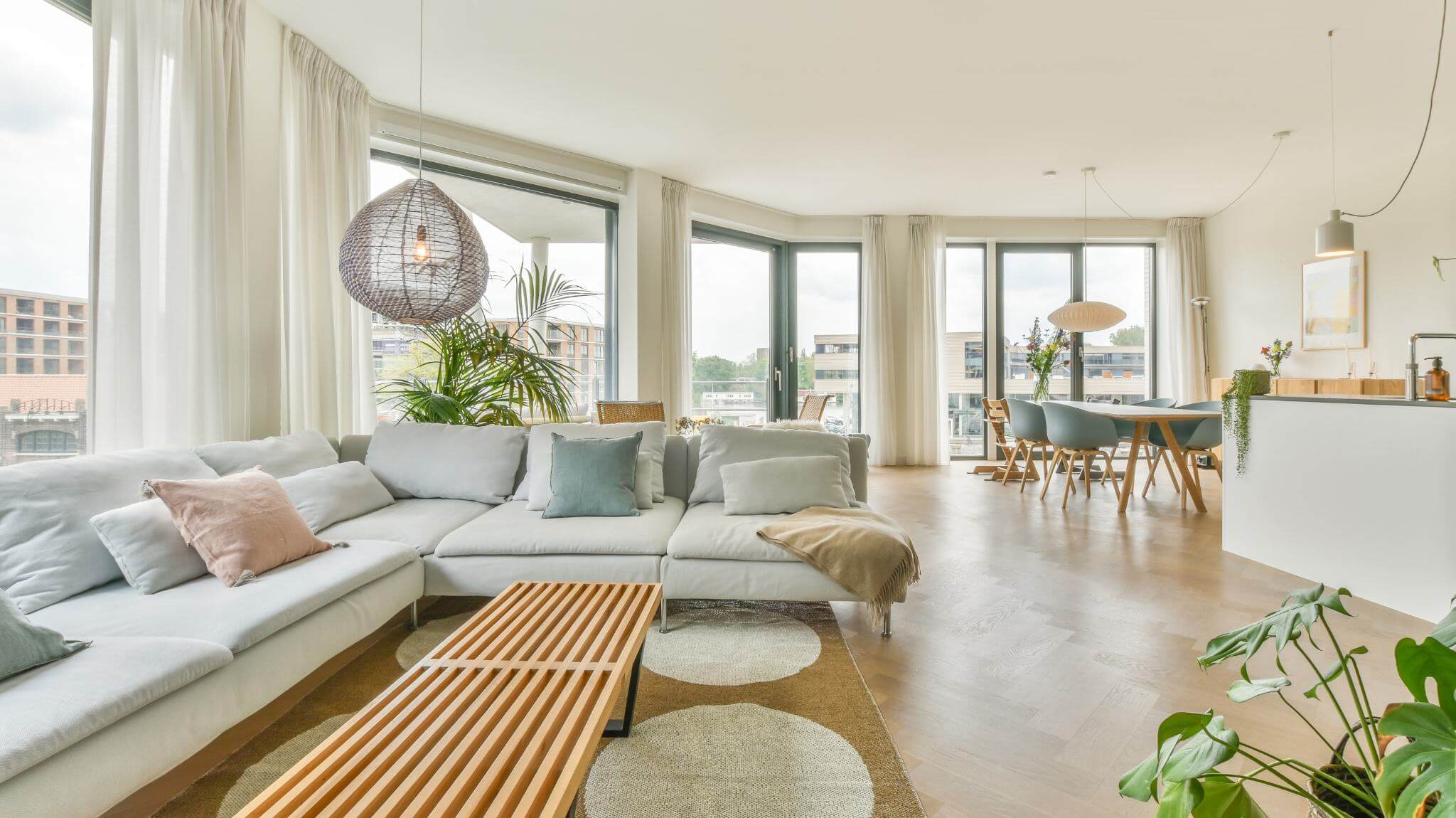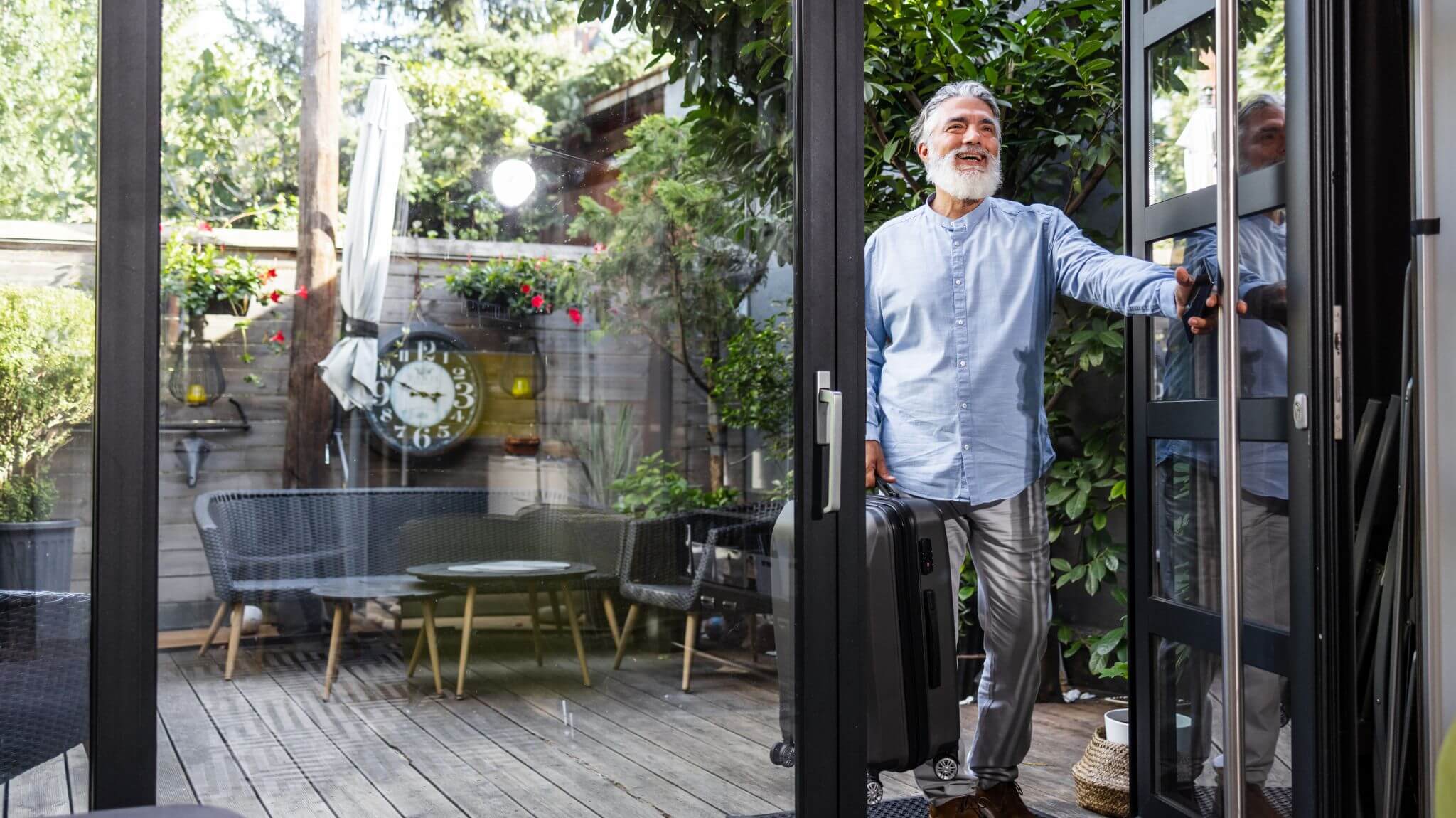8 Trends for Boutique Hotels and the Tech Solutions Driving Industry Change
The day-to-day running of your business may seem an uphill challenge right now. But there are ways to automate your processes so you can operate at maximum occupancy without compromising your service levels or your guests’ unique experience.
In this article, we’ve researched the latest trends in boutique hotels to show you how your competitors are attracting guests while coping with rising costs and recruitment problems.
You’ll find out how you can use innovations in hotel tech to not only streamline your operations but also delight your hotel guests.
Become less dependent on your front desk
8 trends for boutique hotels and te tech solutions driving industry change
It’s an exciting yet challenging time for boutique hotel owners. Guests are desperate to treat themselves to a few nights of luxury, but hoteliers must find innovative ways to keep things running smoothly in the face of rising costs and staffing shortages.
Let’s take a look at the main hotel industry trends for 2023 that can help your business stay relevant and competitive for years to come.
1. Contactless service
Contactless and touch-free hotel technology through smartphones and tablets has become the new normal, offering convenience and safety to guests. Not only does it enable boutique hotel owners to rein in costs, but guests love the flexibility it gives them.
Technological advancements mean you can now offer a contactless experience at every step of the guest journey, from online booking and payment to contactless check-in for hotels, keyless access, and a digital guest book to answer guests’ questions and offer tips on things to do in the area.
Of course, there are still some hotel guests who like a face-to-face check-in at reception, but 71% of guests say they’re more likely to stay in a hotel offering self-service tech. And with tech-savvy Millennials and Gen Zers becoming more frequent hotel guests, the preference for a contactless hotel experience will only increase.
Giving guests the choice to experience your hotel in a seamless and automated way will help your brand stay relevant while streamlining systems and cutting operational costs.
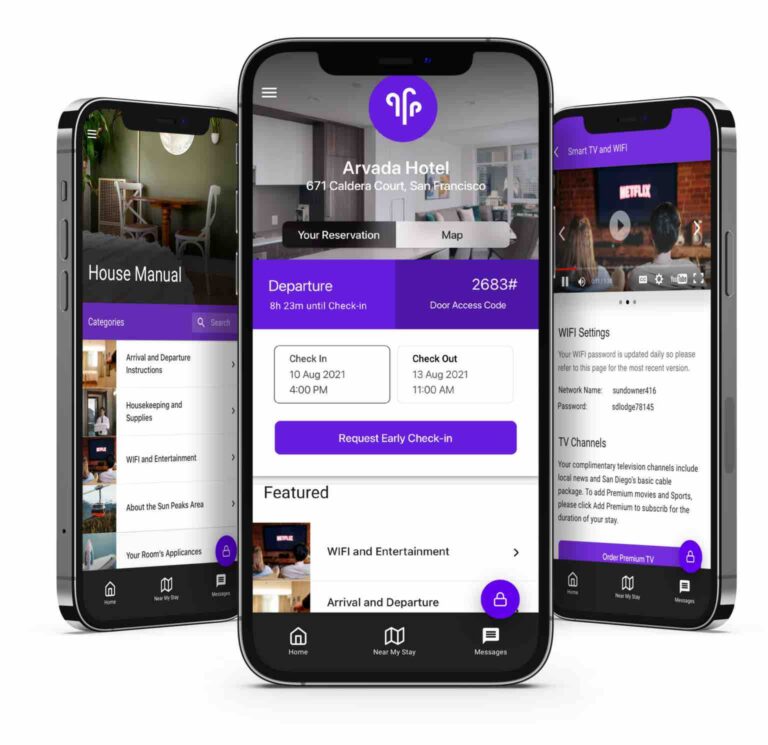
Operto’s guest experience software puts your guests in control of their stay. It offers contactless access, online check-in and check-out, and a digital guide to help them get the most out of their room, your hotel, and the local area.
2. Digital guidebooks
With a digital guide, you can keep your visitors informed and entertained throughout their stay and bring a personal touch, giving your guests insights into your hotel and their vacation.
Traditional printed guides and welcome books quickly go out of date and are expensive to replace. But more and more hotels are adopting the trend set by Airbnb and other short-term rental businesses, by giving guests a digital guide to use on their smartphone or tablet, which accompanies them from initial booking to check-out and guest review.
As well as giving guests essential information about hotel amenities and local attractions, a digital guide can incorporate all the contactless services a boutique hotel has to offer, including:
- Online check-in and check-out
- In-app messaging with hotel staff
- Access credentials for rooms
- Embedded videos on how to use devices
- Highlighting hotel activities and guiding guests to book
A digital guide empowers guests to be more autonomous—and reduces the number of calls to reception for typical queries on restaurant opening times and WiFi passwords.
Give your guests everything they need in the palm of their hand—and become less dependent on your front desk. Operto Guest reimagines the hotel experience.
3. Flexible check-in
Few airline travelers bother with face-to-face check-in these days. Entering passport details and seating preferences is part of the booking process. And, at most, travelers drop a bag off at an automated machine. But many hotels still expect their guests to patiently wait to check in and pick up a key from the front desk.
When you offer your guests flexible check-in, you give them the choice and autonomy that matches their expectations.
A flexible online check-in can form part of the whole contactless guest journey from initial booking to check-out. And repeat customers will save time when they rebook, as all their details will be stored in the system.
4. Keyless door locks
With smart locks and an integrated guest experience and management solution, you can implement keyless access across your hotel. This means you can reduce your front desk’s workload and provide a better experience to guests, who can head straight to their rooms.
With Operto Guest, for example, keyless access works like this:
- Operto integrates with your digital locks and PMS
- When a guest makes a booking, they’re emailed or texted a link to your branded web app
- Here, they can verify their identity and complete a security deposit
- Then they receive an automatically generated mobile key that activates at check-in time
- Throughout their stay, they can navigate your hotel independently and with ease
The problem you face is that, while keyless locks save you money because you don’t need to hire so many front desk staff, the cost of implementing new hardware is high.
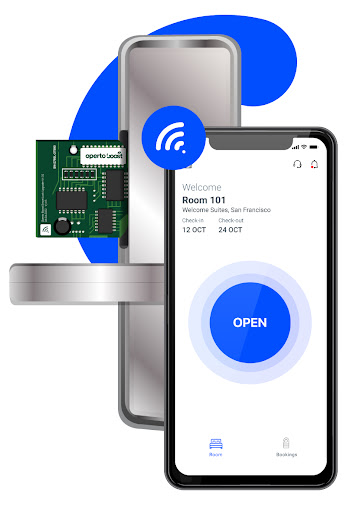
Operto Boost solves this problem—by upgrading access systems and allowing you to keep existing hardware. The Boost Smart Chip fits into your keycard lock, and installation is so easy you can even do it yourself. From here, you can instantly offer digital check-in and you’ll unlock access to a suite of tools to further improve guest experience and streamline operations.
5. Staffing shortages
In 2021, a million American restaurant and hotel workers quit their jobs in the month of November alone, and in total there are 300,000 fewer hospitality workers now than before the pandemic.
Many long-term employees had years of experience, leaving a knowledge gap that is difficult to overcome, particularly with the more complicated legacy technology used by some hotels.
For the near future at least, hotels are going to have to learn how to operate their business with less staff, and automated systems could be key to the survival of smaller boutique hotels.
Fortunately, the mass resignation of workers since the pandemic has coincided with the rise of self-service technology.
For existing staff, this means they can delegate many processes, such as check-in, room allocation, and fielding guest questions to the technology. And, instead, focus on developing closer connections with visitors and enhancing the guest experience.
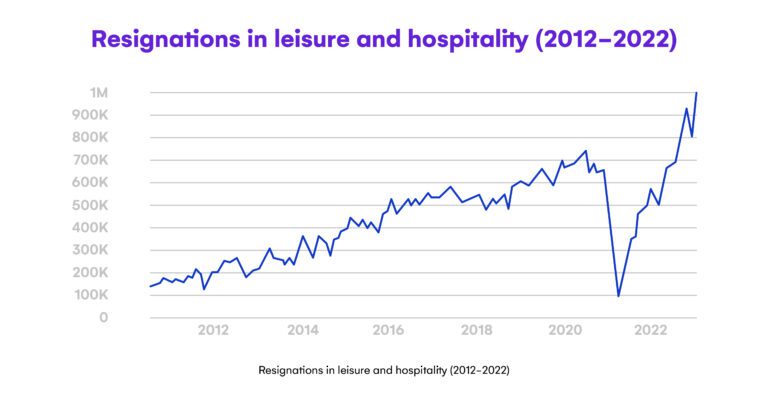
6. Changing demographics and digital nomads
Chances are, your current guests bear little resemblance to the visitors you were welcoming three years ago. A combination of travel restrictions and rising costs have encouraged many to vacation closer to home. Adapting your hotel marketing strategy and booking tools is essential for attracting guests who are actually interested in your hotel.
Around the world, people have exchanged their inner-city apartments for a nomadic lifestyle made possible by remote work.
These guests are typically younger Millennials or Gen Zers. They’re tech-literate (that is their livelihood after all) and they want flexibility, autonomy, and a workspace with reliable WiFi.
Adapting to this new demographic can involve reconfiguring rooms to make them work/sleep spaces, and offering discounts to nomads who want to stay for longer periods of time.
7. Automated processes
In addition to the innovations that improve the guest experience and entice tech-savvy travelers, hotels can use automated processes to streamline their operations, reduce labor costs, and support short-staffed teams.
Innovations in hotelier experience (HX) include:
- Room management. Automatically recognize which bookings are eligible for early check-ins, late checkouts, or flexible extensions. Let guests know about available upgrades to guests in real-time to boost last-minute unsold rooms.
- Pricing strategy. Using an automated revenue management system or dynamic pricing software, adjust room rates automatically based on demand.
- Guest messaging software. Digitize your guest relationships to be less dependent on staff and your front desk.
- Billing. Automate the billing for hotel amenities like gyms, room service, and mini bar to ensure all charges appear on a guest’s bill.
- Housekeeping. Track housekeeping schedules, completion tracking, guest messaging, and team interactions.
- In-room tech. Have remote control and oversight over the in-room experience with solutions like smart thermostats that also reduce your energy use.
8. All-in-one solutions
Boutique hotel owners are on the lookout for a tech solution to help them keep up with the latest hospitality industry trends and meet the dual challenge of staffing shortages and rising costs.
Traditional legacy systems involved hotels purchasing expensive software and servers, but contemporary solutions offer cloud technology and a web-based hospitality app.
An all-in-one solution that integrates with other systems empowers hoteliers to quickly modernize internal processes. And it delivers the most important trend in boutique hotels: A smart tech stack consisting of keyless entry and digital check-in that’s connected to your PMS.
By centralizing your operations and guest experience solutions, you can enhance the guest experience and streamline operations—making for a simpler, more efficient hotelier experience at management level.
Being responsive to boutique hotel trends by leveraging tech solutions
Managing a boutique hotel can feel like a juggling act. While you want to accept all your bookings and maximize room occupancy, how can you keep it all running smoothly and maintain standards with a constantly changing and reduced labor force?
Automations and digital tools offer a solution in the form of streamlined processes for management, and contactless experiences and digital guides for guests—allowing you to become less dependent on your staff and front desk.
By responding to the latest trends and hospitality tech, you can delight your customers while reducing your workload.
Turn your existing locks into smart locks without replacing them.
Frequently asked questions about boutique hotel trends
What is a boutique hotel?
A boutique hotel is a small independent hotel that doesn’t compromise on style and luxury. Many have a distinctive aesthetic, a unique personality, and cater to a niche market. Boutique hotel owners tend to focus on providing a more intimate and personalized experience than larger hotel chains, while guests often expect tech-driven comfort and convenience.
Are boutique hotels growing?
Boutique hotels are growing due to the rising demand for unique and authentic experiences. What’s more, advances in technology have also made it easier for independent hoteliers to compete with larger chains.
With the boom in automation and self-service software, boutique hotels no longer have to depend on front desk staff to provide their guests with a luxury experience, which means they can be competitive while remaining operationally streamlined.
What are at least three major trends in today’s hotel industry?
Three major trends in today’s hotel industry are:
- Contactless service: Guests want the safety and convenience of contactless service. Innovations like smart locks, Operto Boost, and digital guidebooks make it possible for boutique hotels to meet these expectations.
- Staffing shortages: High turnover in the hospitality industry has left hotels with lean teams that rely on automation and digital processes.
- Changing demographics: As Millenials and Gen Z grow as a hotel-going market, hotels are adapting their services accordingly. For example, there are increasing numbers of digital nomads who look to combine work with travel and stay at hotels for longer periods.
What do people look for in a boutique hotel?
People look for unique character, attention to detail, and exclusivity in a boutique hotel. As guests seek out local experiences, they expect their accommodation to reflect local cultures, designs, and cuisines. And while guests want a more individualized experience than large chains often offer, they also expect the same convenience and quality of service.
Why are boutique hotels so popular?
Boutique hotels are so popular because they are well-positioned to meet all their guests’ expectations. These include the style and comfort of a traditional hotel experience, as well as the personalization and convenience that digital technology, like smart access and digital guidebooks, provide.
More Articles
Want an operations tool that’s smooth and flexible?





